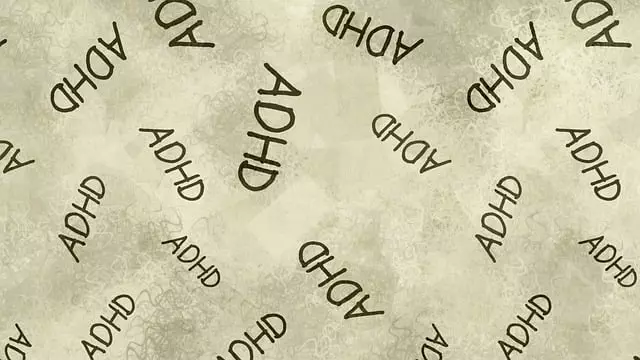The Kaiser Permanente mental health center in Northglenn prioritizes crisis intervention with a holistic approach, combining immediate assistance and long-term resilience building. Through evidence-based practices like Compassion Cultivation and Emotional Intelligence training, along with cultural sensitivity, they empower clients with coping tools and offer tailored interventions based on diverse backgrounds. Swift action strategies include de-escalation techniques and mindfulness meditation to promote self-awareness and emotional regulation. Post-crisis support includes individual therapy, mental health education programs, and readily accessible resources for risk assessment and crisis management plans, ensuring individuals are equipped to face future challenges effectively.
“In the realm of mental health care, crisis intervention plays a pivotal role in supporting individuals during times of acute distress. This article explores comprehensive strategies for crisis intervention at the Kaiser Permanente Mental Health Center Northglenn, a leading provider of psychiatric services. We delve into understanding crisis situations, identifying triggers, and implementing effective immediate response techniques. Additionally, post-crisis support and training resources are highlighted, offering valuable guidance for healthcare professionals at KP Northglenn.”
- Understanding Crisis Intervention at Kaiser Permanente Mental Health Center Northglenn
- Identifying Signs and Triggers for Potential Crises
- Immediate Response Strategies for Critical Situations
- Post-Crisis Support and Follow-Up Care at KP Northglenn
- Training and Resources for Effective Crisis Intervention
Understanding Crisis Intervention at Kaiser Permanente Mental Health Center Northglenn

At Kaiser Permanente Mental Health Center Northglenn, crisis intervention is a cornerstone of our comprehensive care approach. We understand that mental health crises can be overwhelming and often unexpected, which is why our team is dedicated to providing immediate support and guidance. Our strategies are tailored to address not just the immediate symptoms but also to foster long-term resilience in individuals facing various challenges.
Through a combination of evidence-based practices, such as Compassion Cultivation Practices and Emotional Intelligence training, we equip our clients with valuable coping mechanisms. Additionally, our Community Outreach Program Implementation plays a vital role in connecting individuals with local resources and support networks. This holistic approach ensures that our Kaiser Permanente Northglenn community receives the best possible care during times of crisis, setting them on a path towards improved mental well-being and recovery.
Identifying Signs and Triggers for Potential Crises

Recognizing signs and triggers is a vital first step in crisis intervention, especially at a Kaiser Permanente mental health center Northglenn. Individuals often exhibit subtle cues indicating they are struggling; these might include sudden changes in behavior, increased irritability, or withdrawal from social activities. It’s important to foster an environment where people feel comfortable expressing their feelings openly. Effective communication strategies can help; actively listening and asking open-ended questions encourage individuals to share their concerns and underlying issues.
Professionals at Kaiser Permanente mental health center Northglenn are trained to identify triggers that might escalate a situation. These could be related to stress, anxiety, or past traumatic experiences. By promoting self-awareness exercises, individuals can learn to recognize these triggers early on. Mood management techniques, such as deep breathing or mindfulness, can also help in calming down and preventing crises from escalating.
Immediate Response Strategies for Critical Situations

In critical situations, swift action is paramount to mitigating harm and promoting positive outcomes. The Kaiser Permanente mental health center Northglenn emphasizes immediate response strategies that focus on safety and stability. These include de-escalation techniques, where trained professionals use calm presence and active listening to reduce anxiety and aggression. By fostering a sense of trust and understanding, they help individuals regain control and make informed decisions.
Additionally, cultural sensitivity in mental healthcare practice plays a crucial role. Recognizing and respecting diverse backgrounds, beliefs, and experiences ensures tailored interventions. The center incorporates Mindfulness Meditation as a tool to enhance self-awareness and emotional regulation. Encouraging clients to focus on the present moment through mindful practices can help them manage distress and improve overall well-being, aligning with Mind Over Matter principles.
Post-Crisis Support and Follow-Up Care at KP Northglenn

After a crisis situation, providing sustained support and follow-up care is essential to aid individuals in their recovery process at Kaiser Permanente mental health center Northglenn. The center offers comprehensive post-crisis services tailored to meet the unique needs of each patient. This includes individual therapy sessions where trained professionals help individuals process their experiences, develop coping mechanisms, and work through any emotional trauma.
Additionally, Kaiser Permanente Northglenn incorporates Mental Health Education Programs Design into its approach, empowering patients with knowledge about mood management techniques and stress-reduction strategies. These programs are designed to be engaging and accessible, fostering a sense of community among participants and encouraging long-term mental well-being. Crisis intervention guidance is seamlessly integrated throughout these support systems, ensuring that individuals receive the necessary tools to navigate future challenges effectively.
Training and Resources for Effective Crisis Intervention

The effectiveness of crisis intervention heavily relies on the training and resources provided to those equipped to handle such situations, like the professionals at Kaiser Permanente mental health center Northglenn. Comprehensive training programs that educate individuals on recognizing early signs of distress, de-escalation techniques, and evidence-based strategies for managing crises are essential. These programs should encompass various scenarios to ensure practitioners can offer tailored support, fostering a sense of safety and inner strength development in individuals facing mental health challenges.
Moreover, readily accessible resources play a crucial role in empowering crisis intervention specialists. This includes easy-to-use tools for risk assessment, crisis management plans, and materials promoting mental health awareness. By providing these resources, professionals at Kaiser Permanente mental health center Northglenn can promptly implement effective interventions, offering anxiety relief and supporting the overall well-being of individuals experiencing crises.
In conclusion, crisis intervention strategies play a pivotal role in addressing mental health emergencies at Kaiser Permanente Mental Health Center Northglenn. By understanding the signs and triggers of potential crises, implementing immediate response strategies, and providing comprehensive post-crisis support, the center ensures effective care for its patients. Additionally, thorough training and accessible resources empower healthcare professionals to handle these situations with confidence and expertise, fostering a supportive environment at Kaiser Permanente mental health center Northglenn.






